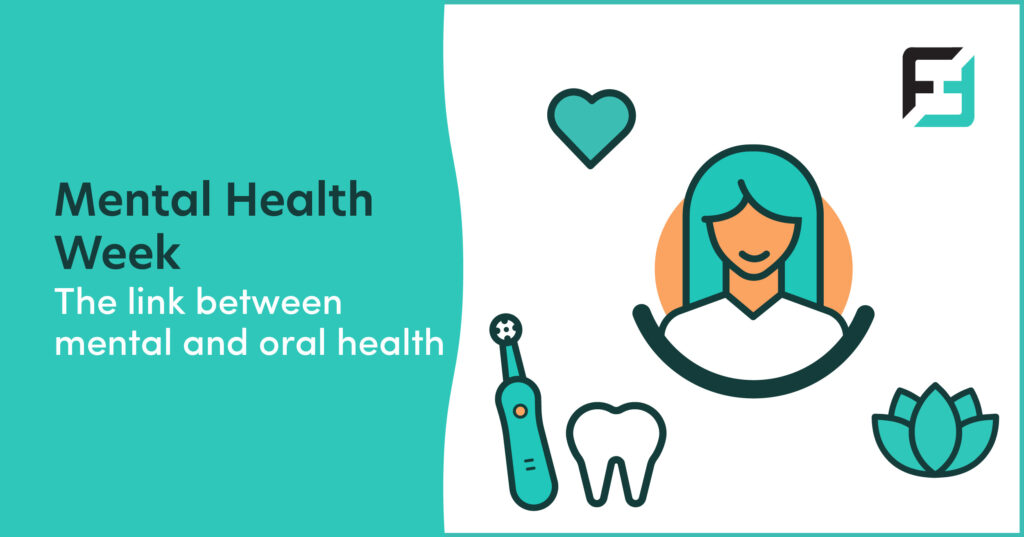Exploring the connection between mental illness and oral health conditions
Mental health impacts many aspects of daily life, including how we act, think, and feel. Not only does it affect our emotional and psychological health, but also our physical well-being. One area that is not as frequently discussed is the link between mental and oral health. While the link may not be immediately obvious, there is growing evidence to suggest a close connection between these two aspects of well-being. When someone struggles with mental health conditions, such as anxiety and depression, prioritizing their oral hygiene routines can become increasingly challenging.
Mental health conditions affect motivation and energy levels, making focusing on tasks such as brushing your teeth and flossing regularly more difficult. Furthermore, poor oral health can also affect mental health and cause undue feelings of stress, anxiety, and social isolation. Unfortunately, if left unchecked, various oral health and mental conditions could develop because of this vicious cycle.
In honour of Mental Health Week, this article will explore the connection between mental and oral health and the steps one can take to improve overall well-being.
How Mental Health Can Impact Oral Health
When discussing mental illness, it is important to highlight the negative consequences on oral well-being, which could lead to more stress and anxiety if not addressed.
Gum Disease
Mental illness often results in undue stress that weakens the immune system. A weaken immune system can make someone more susceptible to gum disease. Furthermore, someone battling a mental illness may struggle to maintain oral health routines. They may forget or no longer feel motivated to brush their teeth or floss regularly. A direct consequence of this is an increased risk of cavities, and gum disease, among other oral health conditions.
Dry Mouth
Certain medications prescribed to treat conditions like depression and anxiety can cause dry mouth. Dry mouth is a condition where the mouth does not produce enough saliva. This lack of saliva can increase the risk of tooth decay and gum disease since saliva helps to neutralize the acids produced by bacteria in the mouth.
While it is important to take the medication prescribed by your healthcare provider, you can also take active steps to protect your oral health. To avoid dry mouth, increase your water intake, suck on sugar-free sweets or chew sugar-free gum. If the condition has already developed, your dentist may suggest dry mouth gel to moisturize the mouth and protect teeth/oral tissues.
Bruxism
Bruxism is another term for teeth grinding and is often a side effect of stress and anxiety. Bruxism refers to individuals clenching their jaws and grinding their teeth and is particularly common at night. These actions can cause damage to the teeth, including chipping and cracking, and lead to jaw pain and headaches.
How Oral Health Can Impact Mental Health
While mental health can impact oral health, the relationship between the two is bidirectional. In other words, poor oral health can also have a negative impact on mental health.
Self-Esteem and Isolation
Poor oral health can affect one’s self-esteem and confidence, which can have a negative impact on their mental health. Feeling self-conscious about your appearance or worrying about bad breath can affect your ability to socialize and form connections with others, potentially leading to feelings of loneliness.
Pain and Discomfort
Dental pain and discomfort can be incredibly distressing and interfere with our ability to focus on other aspects of our lives. Chronic pain can also lead to feelings of anxiety, hopelessness, and depression.
Sleep Disturbances
Oral health problems such as bruxism (teeth grinding) can interfere with our ability to get enough sleep. Lack of sleep can lead to fatigue, irritability, and anxiety, ultimately affecting someone’s emotional well-being.
How to Maintain Good Mental and Oral Health
When struggling with a mental or oral health condition, it is important to take active steps to prioritize your oral health and well-being.
Establish a Routine
It can be easier to remember oral hygiene routines when you create a regular schedule. Try to make brushing your teeth and flossing a habit by performing these actions at the same time every morning and night. Thankfully, there is a range of dental products that you can add to your routine that could help protect your oral health, such as fluoride rinse.
Consult a Dentist
When struggling to maintain good oral health, it can be helpful to discuss this with a dental professional. They might be able to advise and support you on steps you can take to protect your oral health. Maintain regular check-ups with your dentist to catch any oral conditions early, and if you ever feel dental pain, consult your dentist.
On the other hand, if you are self-conscious about a certain dental condition, such as discolouration, missing teeth, or crooked teeth, you can speak to your dentist about potential solutions or procedures.
Reduce Stress
As mentioned earlier, stress can have a significant impact on oral health. Finding ways to reduce stress in your life, such as practicing mindfulness, yoga, or other relaxation techniques, can have incredible effects on conditions such as bruxism.
Maintain a Healthy Diet
A balanced diet low in sugar and high in nutrients can help to maintain good oral and mental health. Limit sugary and acidic foods and drinks, and eat plenty of fruits, vegetables, and lean proteins.
Conclusion
The relationship between mental and oral health is complex and bidirectional. Poor oral health can contribute to mental health problems such as low self-esteem, social isolation, and stress. On the other hand, mental health problems such as depression and anxiety can make it more difficult to prioritize oral hygiene and maintain good oral health. Therefore, by taking care of our oral health and mental health, we can help to promote good overall physical and mental well-being.

